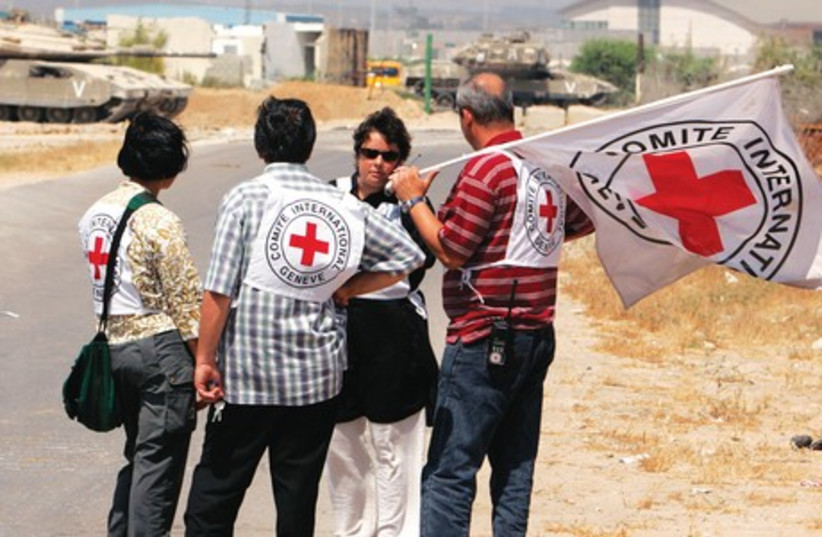The International Committee of the Red Cross has been totally ineffective in procuring aid for the hostages held in Gaza by Hamas. Its lack of empathy and inability to fulfill its mandate illustrate how obsolete and useless it has become.
This week Prime Minister Benjamin Netanyahu once again called upon the organization to help bring life-saving medicine to hostages in Gaza.
“I met with the Red Cross; I handed them a box of medicine for some of the hostages shown here. Some of them need it... I told a representative to take this box to Rafah; she said no. It was a difficult conversation,” he told a special Knesset session attended by families of hostages still held in Gaza.
It has been more than 80 days since the Hamas genocidal attack on Israel on October 7. Hamas still holds children, elderly, women and men; Israelis, and foreign workers.
The Red Cross has not been able to visit the hostages or bring them notes from home or even verify their circumstances. The organization has not pressed Hamas hard enough, nor any of the other groups holding hostages, to get access.

The ICRC’s President Mirjana Spoljaric told Israeli journalist Dana Weiss over the weekend that Hamas and Israel were equally to blame for her organization’s inability to access the hostages. Weiss got exasperated and claimed that the organization’s only achievement had been to transport those hostages that had been released to Israeli hands last month, but that some hostages reported that those hours in the Red Cross’s control driving through Gaza were the scariest moments of their captivity.
“So you’re actually acting as an Uber, and not a very good Uber,” said Weiss.
Spolijaric responded that the ICRC can’t antagonize Hamas or it will not be able to perform even their perfunctory transportation role.
Red Cross has received widespread condemnation
Families who were released have slammed the Red Cross for its behavior as well. The family of Raz Ben Ami is suing the Red Cross for its lack of response. They had appealed to the organization in the US, Germany, and Israel, to no avail.
Hamas, a terrorist group, has been allowed to run Gaza for the greater part of two decades. Yet the international community has not held it to the standards of a government. Instead, Hamas leaders are hosted abroad, often by Western allies, and yet the group is not called upon to provide access to hostages.
The 240 hostages it kidnapped on October 7 are only the most recent examples of these crimes against humanity. Hamas has also been holding Avera Mengistu and Hisham Sayed, and the bodies of IDF soldiers Oron Shaul and Hadar Goldin. It has held Mengistu and Sayed, who are presumed to be alive, for nine years. The Red Cross has also not visited them.
One problem with the Red Cross today is that in its pursuit of neutrality, it often ends up effectively neutralized. This “both sides” approach, rather than promoting innovative third-party solutions, places a stumbling block in its path. For instance, the Red Cross has often sought Qatar’s mediation. This doesn’t always work. Thailand, for example, got its hostages released via talks with Iran. We are not suggesting Israel talk to Iran, but rather that the Red Cross could make inroads in Gaza by other means, instead of repeating the same failed approach.
The world cannot be held hostage by the Red Cross. It has proven unwilling to do the most basic tasks to help victims. Rather than beg it to send medicine, only to get a cold inhuman response, it’s time for new leadership to emerge to offer people this essential support.
Clearly, it’s time to rethink the role the Red Cross plays. Its ineffective and callous behavior illustrates the need for a new organization that can play a more valuable role.
Lacking the will to insist on access to the hostages not held by Hamas is one of many examples that cry out for new leadership in the human rights sphere and for a new organization to pioneer the important work the Red Cross once did.
